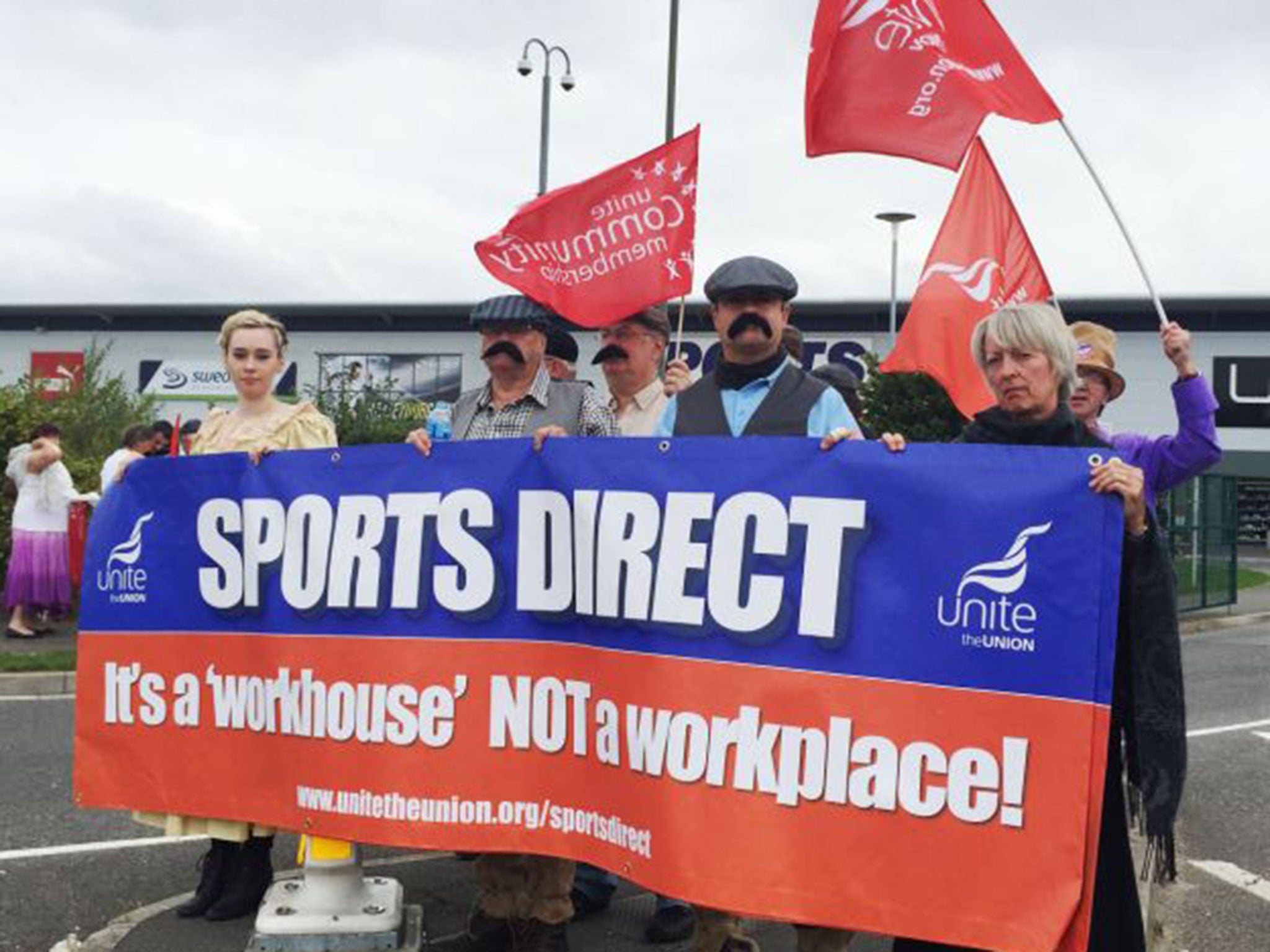Sports Direct: Mike Ashley suffers double humiliation as stocks fall 11% and judge throws out attempt to get Rangers chairman jailed
Mr Ashley was also conspicuous by his absence from Sports Direct’s presentation to the City, missing it for the first time since the company listed in 2007

Your support helps us to tell the story
From reproductive rights to climate change to Big Tech, The Independent is on the ground when the story is developing. Whether it's investigating the financials of Elon Musk's pro-Trump PAC or producing our latest documentary, 'The A Word', which shines a light on the American women fighting for reproductive rights, we know how important it is to parse out the facts from the messaging.
At such a critical moment in US history, we need reporters on the ground. Your donation allows us to keep sending journalists to speak to both sides of the story.
The Independent is trusted by Americans across the entire political spectrum. And unlike many other quality news outlets, we choose not to lock Americans out of our reporting and analysis with paywalls. We believe quality journalism should be available to everyone, paid for by those who can afford it.
Your support makes all the difference.Sports Direct’s founder, Mike Ashley, faced a double embarrassment as he watched the company’s stock fall by 11 per cent and a High Court judge threw out his attempt to get the chairman of Glasgow Rangers Football Club jailed on the same day.
The sportswear retailer’s shares sank by 73p to 592.5p – a 14-month low –wiping about £500m off its market value and leaving Mr Ashley, who holds a 55 per cent stake in the business, about £250m poorer on paper.
Investors turned against Sports Direct as the company admitted that it was losing ground to rival JD Sports, which upgraded its profits forecasts last week. By comparison, Sports Direct achieved only a 0.1 per cent rise in sales for the six months to 25 October, to £1.43bn. Profits also came in below expectations, up 3.6 per cent to £166.4m. Analysts had hoped for an 8 per cent rise.
Mr Ashley was conspicuous by his absence from Sports Direct’s presentation to the City, missing it for the first time since the company listed in 2007. One investor told The Independent: “The only reason for going to the results was to hear from Mike. What’s the point now if he isn’t even going to show up?”
For the first time, commentators also criticised the company’s habit of investing in rival companies and other listed businesses, rather than focusing on overseas acquisitions that it must make in order to hit its profit targets. This year has seen Mr Ashley’s firm buy holdings in Debenhams, Tesco, Findel, Direct Golf and others, with the market at a loss to explain some of the decisions made. Freddie George, a retail analyst at Cantor Fitzgerald, warned: “The cashflow, we believe, should be channelled into developing the brand online and overseas in Europe, rather than on opportunistic investments such as the recent purchase of a holding in [the online sports and gifts retailer] Findel.”
The Findel saga has left many in the City scratching their heads. Sports Direct bought a 19 per cent stake, now reduced to 17.5 per cent, in its rival and is pushing to have one of its executives appointed to Findel’s board. Last week, The Independent revealed that Sports Direct’s chosen candidate, Benjamin Gardener, was one of those responsible for the clothing retailer USC when it went into administration and did not act on advice to tell staff about possible job cuts.
The administration is now part of a criminal investigation, with Sports Direct’s chief executive, Dave Forsey, charged with failing to tell the Government about potential redundancies. He has pleaded not guilty and a trial date is expected to be set in March.
Jonathan Pritchard, a retail analyst at Peel Hunt, said that part of the problem was that Sports Direct had become too reliant on its own brands, such as Slazenger, Dunlop and Everlast, with third-party brands such as Nike and Adidas opting to give their best stock to JD Sports to sell.
He added: “Sports Direct seems to have lost touch with its customers. There is too much own-label product, especially clothing, in core stores and a lack of ranging finesse in Europe. Two recent disappointing acquisitions don’t help either, and these factors have turned forecast momentum negative.”
Sports Direct’s management admitted yesterday that this problem had particularly affected its business in Austria, where few people have heard of the company’s UK brands, and this led to a writedown of the value of the operation.
But its premium store brands also suffered a 12.2 per cent fall in sales, to £88m, stemming mainly from the closure of 24 loss-making USC shops. The company said there were no redundancies, with staff redeployed elsewhere.
Mr Forsey, meanwhile, was forced to defend Sports Direct against claims that staff at its warehouse are effectively earning below the minimum wage because they were forced to wait for around 15 minutes after each shift to be searched by security staff.
Join our commenting forum
Join thought-provoking conversations, follow other Independent readers and see their replies
Comments